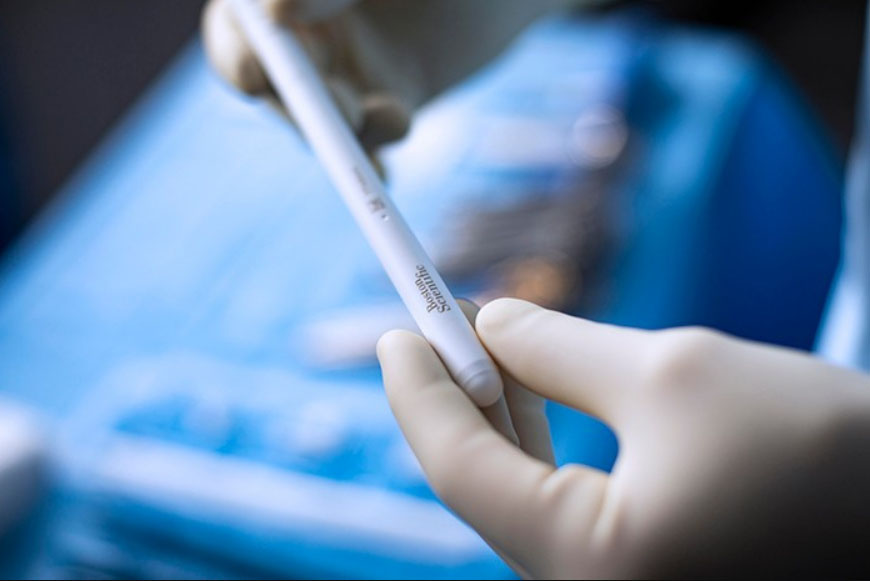Men less likely to seek medical help, They are as likely as women to go for health screenings, but are more likely to dismiss symptoms, which can be dangerous, doctors say
For men with my condition, it may be emotionally challenging to step out or talk about it to a third party like a doctor or friends. But there is no point in waiting for things to get better, because they will not. Don’t be ashamed or shy. It’s extremely common, so get professional help.
Best affordable cost penile implant surgery in India
A man in his 20s lived with constipation for six months before seeing his doctor. It turned out he had a large polyp in his intestine that required surgical intervention.
This anecdote shared by Dr Shi Hong Kai, a general practitioner at DTAP clinic, is not unusual.
Studies show that men are often less likely to seek medical help for physical and mental health issues, or wait longer to seek help, and this may have grave consequences.
Experts say that lack of health literacy, embarrassment and financial concerns over medical costs are some of the reasons men may ignore their symptoms or avoid seeing a doctor for help.
Men are even less likely to seek help over mental health because of perceptions that depression is a “feminine problem” or is unmanly, says Dr Mythily Subramaniam, assistant chairman of medical board (research) at the Institute of Mental Health (IMH).
She adds that masculine norms “emphasise the importance of selfsufficiency, strength and invulnerability ”. This affects how men view their symptoms and whether they seek help, especially when it comes to mental health.
“It is fairly well established that men are less likely to seek help for mental health conditions, especially depression. It is also well known that rates of undiagnosed depression are substantially higher in men than women,” she says.
“Men have much higher rates of suicides than women globally, and again this is attributed to their reluctance to seek help for mental health conditions or other problems.”
ASHAMED OR SHY TO SEEK HELP
A 43-year-old man who wants to be known as Mr Ang developed erectile dysfunction soon after starting medication for hypertension more than a year ago. He sought medical help only in September 2022.
He says: “For men with my condition, it may be emotionally challenging to step out or talk about it to a third party like a doctor or friends. But there is no point in waiting for things to get better, because they will not. Don’t be ashamed or shy. It’s extremely common, so get professional help.”
He adds that friends of his with the same problem turned to online searches, rather than professional help.
While people should not rely solely on the Internet for information and treatment, Dr Ronny Tan, urologist at Mount Elizabeth Hospitals and Parkway East Hospital, says “Dr Google” has led to more men seeking help for issues with sexual function.
However, he still observes a time lag of six months to a year between the development of symptoms and the first clinic visit, and this can be dangerous.
Dr Tan says many patients dismiss erectile dysfunction and problems with urination as part of ageing, or are embarrassed to bring up these topics.
“Some are still unaware that treatment for these conditions, especially erectile dysfunction, are legitimate medical therapy and they won’t be judged when they breach this topic with their doctors,” he adds.
As a result, some of his patients have had their relationships break down over sexual dysfunction.
A man with poor urinary flow who did not seek medical help early developed kidney failure.
Other patients arrived in the late stages of prostate cancer.
Prostate cancer is easy to miss in the early stages, says Dr Tan, but blood tests for tumour markers and digital rectal examinations can help with early diagnosis. Sometimes, the cancer is identified when a patient consults him for issues with urination, which could be due to benign enlargement of the prostate gland – which often co-exists with prostate cancer.
He advises men to go for annual medical check-ups.
HEALTH LITERACY OUTREACH SHOULD TARGET MEN
Lack of health literacy leads men to dismiss their symptoms. They may chalk physical changes down to stress, ageing or other factors.
Dr Shi says that patients are generally less likely to seek help for altered bowel habits such as constipation or diarrhoea. “Many patients are unaware of what is normal and abnormal, and prefer to wait and see if their symptoms spontaneously resolve.”
A study led by researchers from IMH and published in 2022 in online journal BMJ Open found that men in Singapore were much less likely to recognise the symptoms of diabetes than women.
Even symptoms such as foot wounds taking a long time to heal, blurred vision, frequent urination and feeling very tired and thirsty after a short walk did not ring alarm bells, says lead author Roystonn Kumarasan, a research assistant from IMH’s research division.
“There were those who incorrectly thought the symptoms were part of normal ageing, felt that these were not of medical concern, or linked the symptoms to medical problems such as kidney functioning problems, heart-related problems, abnormal blood pressure. But they could not particularly relate the symptoms to diabetes,” adds Mr Kumarasan.



